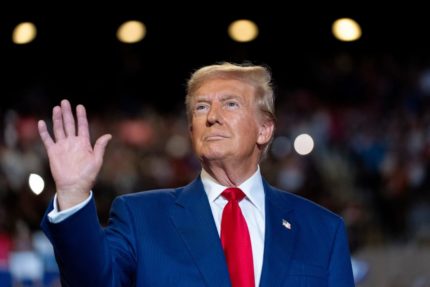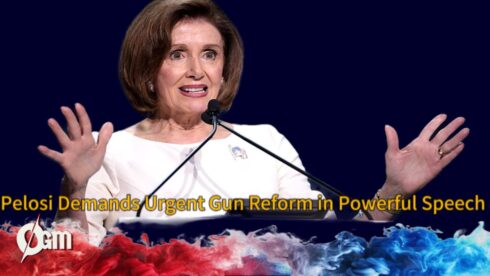As former President Donald Trump gears up for another term, his allies and Congressional Republicans are signaling an intensified response to pro-Palestinian protests, particularly those critical of Israel’s policies. Over the past year, Donald Trump allies have developed plans to expand investigations and introduce legal measures targeting pro-Palestinian protesters, their funders, and related organizations. This report delves into the legal pathways a second Trump administration might pursue in its crackdown on the movement.
Legal Pathways for Crackdown on Pro-Palestinian Advocacy
Under the revived Donald Trump administration, federal investigations could include various legal mechanisms to curb pro-Palestinian protests. The Foreign Agents Registration Act (FARA) could be used against protest leaders and organizations accused of failing to register as “agents of a foreign principal.” This law requires individuals or entities acting on behalf of foreign governments or political entities to disclose their activities. Additionally, those who raise funds or openly advocate for Hamas or other U.S.-designated terrorist organizations could face deportation or federal prosecution. Actions such as blocking synagogue entrances or disrupting Jewish events could also lead to federal indictments under the Freedom of Access to Clinic Entrances (FACE) Act, which prohibits obstructing access to religious institutions.
Moreover, protest groups with ties to foreign entities could come under scrutiny if they fail to comply with FARA, risking prosecution and potential forfeiture of nonprofit status. Donald Trump-aligned legal organizations, including America First Legal, have already filed lawsuits aimed at bringing about stricter federal enforcement against pro-Palestinian activism. The legal cases, which have yet to reach a resolution, offer a blueprint for how Trump officials could approach the protest movement and its funding networks.
Donald Trump Ally Republicans Warn of Stricter Law Enforcement
Several Congressional Republicans have voiced support for intensified scrutiny of pro-Palestinian protest groups, especially those operating on college campuses. Senator Joni Ernst, a key Donald Trump ally, recently called for the FBI to investigate a pro-Palestinian student group at Columbia University, accusing it of spreading pro-Hamas messages. Although Columbia University has stated the group is not officially recognized, Republicans argue that such activism presents a risk and should be subject to federal investigation.
In addition, Stephen Miller, a former Trump aide expected to return as deputy chief of staff, has been instrumental in developing enforcement measures against pro-Palestinian protests. His organization, America First Legal, has led several legal challenges, accusing agencies like the Department of Education of failing to protect Jewish students from antisemitic harassment on campus. These efforts underscore the alignment of Congressional Republicans and Donald Trump allies in supporting stricter policies targeting protestors, with implications for free speech and civil liberties.
Civil Rights Groups Prepare for Legal Battles
Anticipating an aggressive stance from a potential Donald Trump administration, civil rights organizations, including the ACLU and the Center for Constitutional Rights (CCR), are preparing to counter what they view as a severe threat to First Amendment rights. These organizations argue that the proposed measures would infringe upon free speech, particularly for Muslim Americans and pro-Palestinian advocates. Edward Ahmed Mitchell, Deputy Executive Director of the Council on American-Islamic Relations (CAIR), has voiced concerns that both the Trump and Biden administrations have targeted pro-Palestinian activists with unequal enforcement practices.
The CCR also fears that new legislation under a Republican-led Congress could lead to the loss of nonprofit status for organizations suspected of supporting “terrorist-aligned” activities. This prospect has led to increased coordination among civil rights groups, which are prepared to engage in significant legal battles should Trump’s policies come into effect. Jameel Jaffer, Executive Director of the Knight First Amendment Institute, emphasized that the First Amendment protects the right to criticize government policies, underscoring the determination of these groups to resist any attempts to limit lawful advocacy.
The Future of Campus Activism and Antisemitism Debates
The debate over pro-Palestinian activism has also intensified on U.S. college campuses, where Jewish advocacy groups have filed lawsuits against universities, alleging failure to address what they describe as a rise in antisemitic incidents. Kenneth Marcus, a former official with the Department of Education, now heads the Louis D. Brandeis Center for Human Rights Under Law and has led legal actions against universities. Marcus argues that colleges have not adequately addressed what he sees as the overlap between anti-Zionism and antisemitism.
For many universities, navigating these issues is challenging, as they must balance free speech rights with protections against harassment. The increased pressure on campuses under a second Trump administration could create a climate of heightened regulation, potentially discouraging both pro-Palestinian advocacy and other forms of campus activism.














